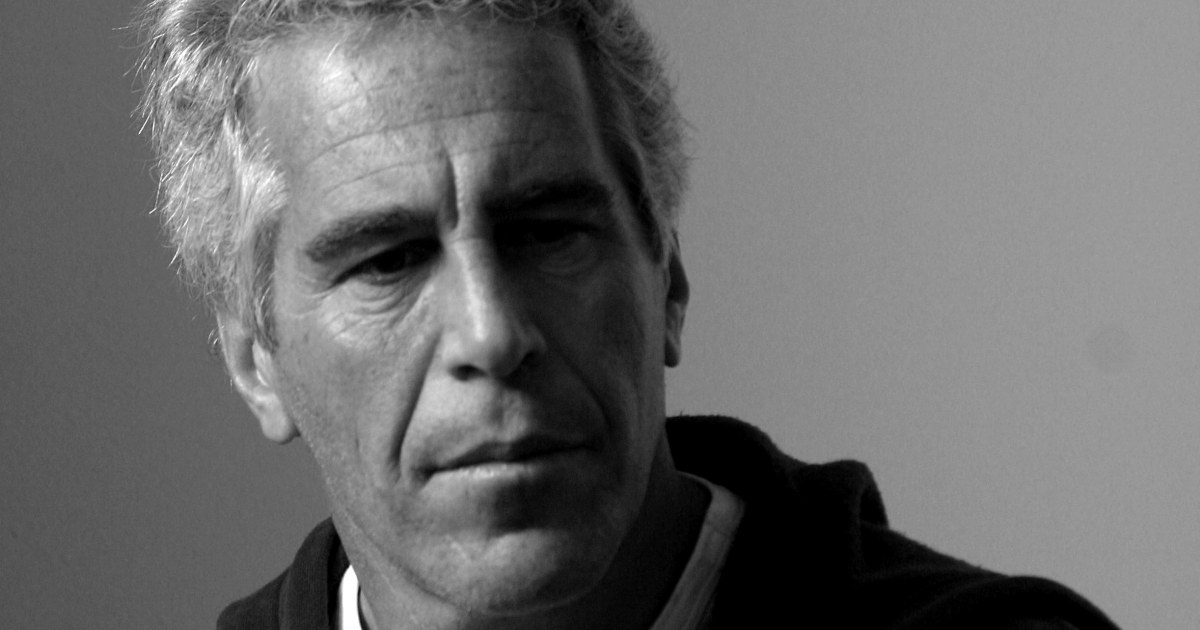Jeffrey Epstein document release continues to keep online conspiracy theorists invested

Newly released documents from a settled lawsuit involving the late financier Jeffrey Epstein held few new details, but that hasn’t stopped social media users from speculating about high-profile names found in the pages.
Hundreds of pages released Wednesday night were part of the civil defamation lawsuit filed in 2015 against Epstein confidant Ghislaine Maxwell by Virginia Roberts Giuffre, who said she was a victim of sex trafficking and abuse. Maxwell is serving a 20-year prison sentence after she was convicted in 2021 of helping Epstein recruit and sexually abuse teenage girls.
Since his death, Epstein has taken on an almost mythical status in many online communities prone to conspiracy theories and inspired general skepticism of those in power. The statement “Epstein didn’t kill himself” became a common enough refrain to be the basis for a Wikipedia article, and a subreddit dedicated to him and his crimes counts more than 107,000 members.
While various theories have swirled around Epstein, most center on the idea that he is the key to uncovering secret, widespread corruption and abuse — elements shared with other popular conspiracy theories, including QAnon.
Interest in Epstein rose in December when a judge ordered the disclosure of the names of over 150 people mentioned in court documents relating to him. Much of the fascination has been around “Epstein’s list,” a misnomer for the names mentioned in various court documents related to Epstein, which don’t necessarily indicate wrongdoing. Numerous posts detailing “Epstein’s list” got traction online without context, fueling speculation about the actions of those named.
Paul Bleakley, an assistant professor of criminal justice at the University of New Haven, said some people are under the misconception that the court released an official list of Epstein’s clients.
“Most people are not going to go through the original files,” Bleakley said. “Most people will see a list, see it being purported to be what was released, and will take their opinions and act from there. That’s what’s really dangerous, because it completely misrepresents what was released.”
Many assumed that people mentioned in the lists were implicated in criminal behavior, which wasn’t the case in many instances. Celebrities like Cate Blanchett, Leonardo DiCaprio and Cameron Diaz, for example, were briefly mentioned in the documents as examples of famous contacts Epstein liked to name-drop. Still, some social media users saw their names listed and condemned them.
Bleakley added that some of the lists remove context that is “important to prevent people misguidedly being accused of things.” He said it’s also dangerous because it skews understanding of the case itself, which can affect the ongoing fight for justice for Epstein’s victims.
Joseph E. Uscinski, a political science professor at the University of Miami who studies conspiracy theories, said the reality of document dumps can be less clarifying than people expect.
“They all think there’s going to be something in there that’s going to give them what they already believe, and rarely does it do that,” Uscinski said.
Still, that doesn’t stop people from speculating or holding out hope that they will be proved right in the future.
“People want to get confirmation,” Uscinski said. “Even if it’s not there, they’ll still see it. And if it’s not there, then they’ll say, ‘Oh, the real stuff was redacted, and I know it’s gonna be in the next dump.’”
You can release as much evidence as you like, and there will always still be people saying: ‘This was fabricated. This is a cover-up. I believe what I believe.’
-Paul Bleakley, an assistant professor in criminal justice at the University of New Haven
Bleakley said the Epstein case was and continues to be a “useful political tool” in the current partisan political environment.
Many of the reactions to the newly released documents came from either staunch supporters or critics of former President Donald Trump, both of whom felt the documents were “proof” of some sort of belief they had about his relationship to Epstein, Bleakley said.
Trump has said he hadn’t been in touch with Epstein for 15 years before his death.
Flight records made public in 2019 show former President Bill Clinton flew on Epstein’s planes numerous times. He was also mentioned in the documents and in online posts.
A spokesman for Clinton referred NBC News on Wednesday to a statement from 2019 that said he had not spoken to Epstein in over a decade and that he was unaware of any criminal activity at that time.
Bleakley said online echo chambers have allowed people to reinforce their beliefs, which he said has fueled conspiratorial thinking and extreme partisanship in recent years.
“You can release as much evidence as you like, and there will always still be people saying: ‘This was fabricated. This is a cover-up. I believe what I believe,’” he said.
Victims, Bleakley said, can often become “collateral damage” in conspiracy theorists’ hunt for more documents. They can also be an afterthought in the online conversation about Epstein’s crimes, despite being the ones most affected by them. Bleakley said people can often use such cases for their own self-satisfaction, dehumanizing victims in the process.
“I think that is a really sort of toxic trend that we have in today’s culture, where, in the quest to say, ‘Well, I was right all along,’ that others are inadvertently hurt in the wake of that,” he said.


